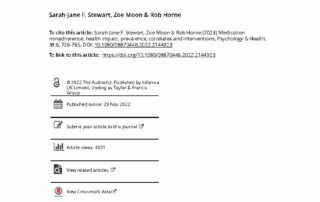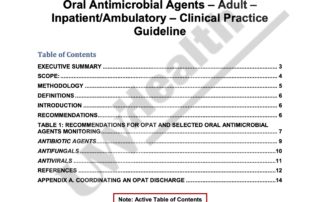Medication nonadherence: health impact, prevalence, correlates and interventions
Nonadherence to medicines is a global problem compromising health and economic outcomes for individuals and society. Adherence support targeted at the level of individuals will be more effective if it is tailored to address the specific perceptions (e.g. beliefs about illness and treatment) [...]
Geographic Variation of Lower- Extremity Major Amputation in Individuals With and Without Diabetes in the Medicare Population
Major amputation rates for individuals with diabetes exhibited 8.6-fold variation compared with 6.7-fold variation for major amputations for individuals without diabetes. Major amputation rates exhibited a high degree of variation when compared with 11 other procedures in the Medicare population over the same time [...]
Impact on Cost of Care by Improving Treatment Compliance in the Chronically Ill
The “18 |11 Initiative: What Can We Do About the Cost of Health Care?”, a study by the Society of Actuaries and the Kaiser Family Foundation notes that one of the multiple cost drivers of healthcare is treatment adherence. Read the full report below. [...]
Outpatient Parenteral Antimicrobial Therapy For Infectious Diseases
The idea of sending patients home with an intravenous (IV) catheter to infuse their own parenteral antibiotics or to travel regularly to an infusion suite was unheard of in the early 1970s. Such outpatient parenteral antimicrobial therapy (OPAT) is now the standard of care. [...]
Clinical Monitoring of Outpatient Parenteral Antimicrobial Therapy (OPAT) and Selected Oral Antimicrobial Agents
This document is intended to guide the laboratory monitoring of patients discharging on intravenous antimicrobials. Principles from the IDSA guidelines along with more recent evidence are incorporated in provided recommendations.






